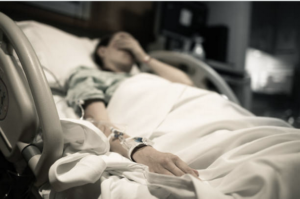Who Gets to Decide How Long a Surgery Needs to Be?
A major insurer recently reversed course on its plan to outright deny claims for anesthesia services. According to recent policy announcements, Anthem Blue Cross Blue

Wrongful Death
Sometimes medical negligence can lead to the death of a loved one. In such circumstances, the heartbreak is exacerbated because the loss was preventable. Wrongful death cases for medical negligence seek financial compensation from the at-fault provider for the death of a loved one.
There are two basic types of wrongful death claims that can be brought: a claim for certain losses suffered by the decedent, or a claim on behalf of the “statutory beneficiaries.” Either type of case is brought by the Estate’s court-appointed personal representative. The personal representative wears two hats: one on behalf of the estate, and one on behalf of the beneficiaries. Both types of claims are typically brought together in a lawsuit.
The first type of claim, for certain losses by the decedent, encompasses the claims that could have been brought if the decedent had lived. This could include their lost income or compensation for the pain and suffering they experienced due to the at-fault party’s negligence.
The second type of claim is on behalf of the “statutory beneficiaries” – the surviving spouse, children, including step-children, or, depending on the case, may instead include siblings or parents of the deceased. Statutory beneficiaries may be compensated for what they have lost as a result of the death of that loved one. The law in Washington changed just a couple of years ago to redefine eligible beneficiaries, thanks, in part, to efforts from the Washington State Association for Justice. Now parents of adult children may be able to recover damages for their loss.
Wrongful death cases may arise from many types of medical negligence. Wrongful death cases may come from errors in diagnosing a serious infection like sepsis, or for errors during surgery. Sometimes a physician or staff may miss a critical finding in a lab test, and the patient may go untreated for this condition. If you think your loved one died due to medical negligence, give us a call or send us a message.
In reviewing a wrongful death case we will always have to prove that the defendant was negligent, and that this negligence caused the decedent’s death. An autopsy is usually (though not always) necessary to prove this second part.
Though a wrongful death claim may compensate loved ones for the loss of a loved one, it cannot, with one exception, compensate for grief. That is, people cannot be compensated for the suffering they are currently enduring due to the loss of a loved one, because damages are “fixed [set] at death.” So the beneficiary’s claim is limited to the nature of the relationship as it existed in the months and years before death. The one exception to this rule is if a child dies. In Washington, parents who have suffered the loss of a child due to malpractice are entitled to have their grief considered and valued by a jury.
If you think you have a wrongful death claim for medical negligence, call us or send us a message. We will carefully review the facts and all relevant medical records.
A major insurer recently reversed course on its plan to outright deny claims for anesthesia services. According to recent policy announcements, Anthem Blue Cross Blue
Someone has developed “black boxes” for the OR. Black boxes, also known as flight data recorders, have been used to collect information from aircrafts for
A recent article in MedPage Today discussed concerns with the increasing use of anesthesia outside of the operating room. In general, non-OR anesthesia poses greater

